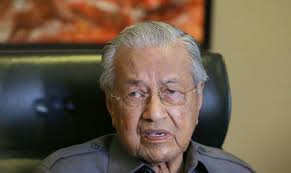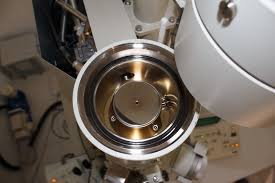South Korea plane crash: all except two are presumed dead on Jeju ...

Fire authorities say that among the 181 people aboard the Jeju Air flight from Bangkok, all but two are presumed dead after the aircraft crashed during an emergency landing at Muan International Airport in South Korea on Sunday morning, according to Yonhap News.
Rescue teams continue to search the wreckage where more bodies remain inside the fuselage. Two survivors, one passenger and one crew member, were pulled from the tail section and are receiving treatment at a nearby hospital.
The Boeing 737-800 attempted a belly landing at around 9:03am local time after its landing gear reportedly failed to deploy.
Witnesses reported hearing loud “bang” noises before the aircraft struck the airport’s perimeter wall, breaking into two pieces and bursting into flames. Local broadcaster MBC aired footage that appears to show a bird strike incident as the plane was descending. An investigation into the cause of the crash is ongoing.
If the death toll is confirmed, this would be South Korea’s worst domestic civil aviation disaster and marks the first major casualty incident involving a low-cost carrier in the country’s history, reports the JoongAng Ilbo.
Previous major accidents on Korean soil include the 1993 Asiana Airlines crash in Mokpo that killed 68 people, and a 2002 Air China crash near Gimhae Airport that killed 129 of 166 passengers.
Kerati Kijmanawat, president of Airports of Thailand, the country’s main airport operator, said in a statement he expressed deepest condolences for this incident.
He said there were no reports of any abnormal conditions, either in relation to the aircraft and the runway, when the flight departed from Suvarnabhumi Airport in Bangkok.
At that time, relevant agencies made no reports of bird strikes or obstacles on the runway, he said.
"AOT places the highest importance on the safety of its aircraft and passengers by continuously inspecting the runway, lighting systems, bird repellent systems, and maintaining them, while complying with international safety standards,” said Kerati.
Heartbreaking scenes unfolded at Muan International Airport as more than 100 family members gathered in a meeting room to receive updates about their loved ones, reports Yonhap News. When Lee Jeong-hyeon, the chief of Muan fire station, told families that most passengers were presumed dead, the room erupted in wails of grief.
“Is there absolutely no chance of survival?” one family member asked, to which the fire chief could only bow his head and reply, “I’m so sorry, but that’s what it’s looking like”.
Some families expressed anger at what they saw as delayed responses from authorities and the airline. They had pleaded to be allowed near the crash site since this morning, but were denied access due to the restricted nature of the airport zone.
When the acting president, Choi Sang-mok, visited the airport, families reportedly surrounded him demanding real-time updates and pleading: “Please think of the families first”.
Choi could only bow repeatedly while saying, “I understand”.
Transport ministry officials have revealed a critical six-minute sequence before the crash, reports Yonhap News. At 08:57, air traffic controllers warned the approaching aircraft about bird strike risks. One minute later, at 08:58, the pilot declared a “mayday”. The plane attempted to land at 09:00 and crashed at 09:03.
One of the two surviving crew members has reportedly corroborated initial theories about the cause, telling rescue workers immediately after being pulled from the wreckage that the aircraft had experienced a bird strike, according to fire officials.
The transport ministry has confirmed that investigators have recovered the flight data recorder, while the cockpit voice recorder is still being sought.
The National Police Agency has deployed 169 forensic investigators to help identify victims. Separately, 579 officers have been deployed to assist with search operations and escort emergency vehicles at the crash site.
Witnesses who have spoken to Yonhap News have described seeing flames in the jet’s engine and hearing explosions before the crash.
Yoo Jae-yong, 41, who was staying near to the airport, said he saw a spark on the plane’s right wing before the incident. “I was telling my family there was a problem with the plane when I heard a loud explosion,” Yoo said.
One witness said he saw the plane descending and thought it was about to land when he noticed “a flash of light”. “Then there was a loud bang followed by smoke in the air, and then I heard a series of explosions,” he said.
Another witness, Kim Yong-cheol, 70, said the plane failed to land in the first attempt and had circled back for another attempt.
Kim said he heard the sound of “metallic scraping” twice about five minutes before the crash.
He saw the plane rising after failing to make a landing, before he heard a “loud explosion” and saw “black smoke billowing into the sky.”
Fire authorities have recovered 120 bodies from the Jeju Air crash site at Muan International Airport, with 59 people still missing, according to South Korea’s national fire agency. Officials say the death toll so far includes 54 men, 57 women, and nine victims whose gender could not be immediately determined.
Rescue teams have divided the crash site into three zones as they continue to search for the remaining victims. However, fire officials told families at a briefing in the airport terminal that survival chances for the missing passengers are “virtually none” due to the severity of the crash and subsequent fire.
Only two people have reportedly survived the crash after being rescued from the aircraft’s tail section. They were rushed to a nearby hospital with “moderate to severe” injuries.
The aircraft, a Boeing 737-800 operating as flight 7C2216 from Bangkok, was attempting what officials described as a “belly landing” after experiencing landing gear problems. The plane struck airport perimeter structures and broke apart, with most of the fuselage being consumed by fire.
According to local media reports, many of the passengers were families returning from Christmas package holidays in Thailand. The flight was carrying 175 passengers (173 South Koreans and two Thai nationals), along with six crew members.
Ambassadors from around the world have offered messages of condolence. Philip Goldberg, the US ambassador to South Korea, said on social media: “I was heartbroken to hear about the tragedy at Muan Airport this morning. My sincerest condolences go out to the victims and their loved ones, and my thoughts are with the people of Korea during this difficult time.”
German ambassador to South Korea Georg Schmidt also offered condolences, writing: “Very best wishes for the injured and all involved in the rescue efforts. Our thoughts and prayers are with South Korea.”
British Ambassador to South Korea Colin Crooks wrote: “Deepest condolences to the families of those who perished in this morning’s dreadful air accident at Muan.”
Acting president Choi Sang-mok has designated Muan as a special disaster zone, reports Yonhap News.
This declaration triggers a range of emergency relief measures and special administrative, fiscal, and financial support from the government to assist regions and residents affected by large-scale natural or man-made disasters.
 View image in fullscreen
View image in fullscreen
South Korea’s national rail operator has announced a special train service to help families reach Muan, reports News1.
A KTX bullet train will depart Seoul Station at 3pm local time and arrive at Mokpo. The railway company says bereaved families can use these services free of charge and additional trains will be arranged if needed. Mokpo station is the closest rail terminal to Muan International Airport.
South Korea’s acting president, Choi Sang-mok, arrived at Muan International Airport at 12:55 PM local time to oversee the response to the disaster.
Choi said at the crash site:
No words of consolation will be enough for the families who have suffered such a tragedy
He promised full government support for bereaved families.
Choi, who became acting president just days ago amid South Korea’s ongoing political crisis, activated the Central Disaster and Safety Countermeasures Headquarters earlier in the day.
His visit to the crash site marks the government’s highest-level response to what is becoming one of South Korea’s worst aviation disasters, and the worst to have occurred on South Korean soil.
The aircraft involved in the crash was a Boeing 737-800, operated by Jeju Air.
A spokesperson for Boeing told the Guardian:
We are in contact with Jeju Air regarding flight 2216 and stand ready to support them.
We extend our deepest condolences to the families who lost loved ones, and our thoughts remain with the passengers and crew.
Jeju Air chief executive, Kim E-bae, has issued official apology (unofficial translation):
First, we bow our heads in apology to everyone who has trusted Jeju Air. At approximately 9:03 AM on 29 December, flight 7C2216 from Bangkok to Muan caught fire while landing at Muan International Airport.
Above all, we express our deepest condolences and apologies to the families of the passengers who lost their lives in this accident. At present, the cause of the accident is difficult to determine, and we must await the official investigation results from the relevant government agencies.
Regardless of the cause, as CEO, I feel profound responsibility for this incident. Jeju Air will do everything possible to promtly manage this accident and support the families of those aboard. We will also do our utmost to determine the cause of the accident in cooperation with the government.
Once again, we pray for those who lost their lives in this accident and offer our deepest apologies to their bereaved families.
Thailand’s prime minister, Paetongtarn Shinawatra has expressed her condolences to the families of the deceased and injured on social media platform, x.
Shinawatra has asked the ministry of foreign affairs to investigate whether there were any Thai passengers on this plane and what the current situation is, according to the post.
Earlier reports from Yonhap news agency indicated two passengers onboard the Jeju Air flight were Thai nationals.
According to Newsis, the Jeju Air aircraft was carrying many holidaymakers returning from a five-day Christmas package tour to Bangkok. The Muan-Bangkok route has only been operating four times per week since 8 December, as part of a seasonal schedule set to run until 23 March next year.
Authorities are working to confirm the identities of victims by cross-referencing the passenger manifest with seating positions on the aircraft.
Fire officials have now shifted from rescue operations to recovery, saying the aircraft’s fuselage is damaged beyond recognition except for the tail section, reports News1.
Some victims were reportedly ejected from the aircraft during impact.
Jeju Air has updated the message on the landing page of its website:
Jeju Air deeply bows in apology to all those affected by the Muan Airport accident. Our first priority is to do everything possible to manage this incident. We sincerely apologise for causing concern.
Fire authorities say that among the 181 people aboard the Jeju Air flight from Bangkok, all but two are presumed dead after the aircraft crashed during an emergency landing at Muan International Airport in South Korea on Sunday morning, according to Yonhap News.
Rescue teams continue to search the wreckage where more bodies remain inside the fuselage. Two survivors, one passenger and one crew member, were pulled from the tail section and are receiving treatment at a nearby hospital.
The Boeing 737-800 attempted a belly landing at around 9:03am local time after its landing gear reportedly failed to deploy.
Witnesses reported hearing loud “bang” noises before the aircraft struck the airport’s perimeter wall, breaking into two pieces and bursting into flames. Local broadcaster MBC aired footage that appears to show a bird strike incident as the plane was descending. An investigation into the cause of the crash is ongoing.
If the death toll is confirmed, this would be South Korea’s worst domestic civil aviation disaster and marks the first major casualty incident involving a low-cost carrier in the country’s history, reports the JoongAng Ilbo.
Previous major accidents on Korean soil include the 1993 Asiana Airlines crash in Mokpo that killed 68 people, and a 2002 Air China crash near Gimhae Airport that killed 129 of 166 passengers.
South Korea’s land, infrastructure and transport ministry has issued a statement on social media site, X, which said (unofficial translation):
The Ministry of Land, Infrastructure and Transport is dedicating all efforts to managing the Jeju Air flight 2216 incident.
At approximately 09:03 on Sunday, 29 December, Jeju Air Flight 2216 (Bangkok-Muan) was involved in an accident during landing at Muan International Airport.
The Ministry has activated its Central Accident Management Headquarters (09:30) and is concentrating all efforts on managing the aircraft accident at Muan Airport.
The aircraft was carrying 175 passengers (including 2 Thai nationals) and 6 crew members. The exact number of casualties is currently being determined.
Investigators from the Aviation Accident Investigation Committee arrived (10:10) and are currently investigating the cause. Safety operation directives have been issued to all airlines and airports.
The Ministry’s Central Accident Management Headquarters remains operational and plans to respond with full organisational capacity to minimise loss of life.
Transport Minister Park Sang-woo has urged all parties to do their utmost in rescue operations and accident management.


 Malaysia
Malaysia Argentina
Argentina  Australia
Australia  Austria
Austria  Brazil
Brazil  Canada
Canada  Germany
Germany  Ireland
Ireland  Italy
Italy  Mexico
Mexico  New Zealand
New Zealand  Poland
Poland  South Africa
South Africa  United Kingdom
United Kingdom  United States
United States 




























